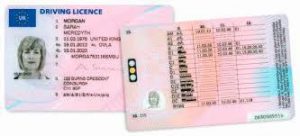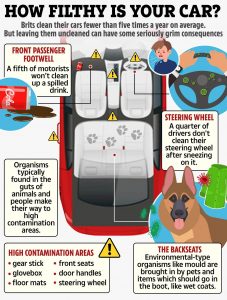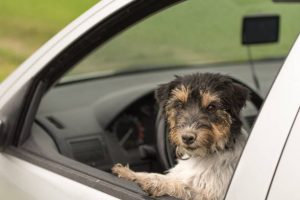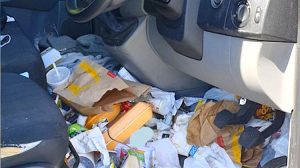DRIVING laws can cause confusion and there can sometimes be a grey area over what could land you with a fine and what doesn’t.
The rules and regulations of driving often have motorists scratching their heads trying to figure out the legislation.
Some of the laws could land you in trouble with the police, with some having more serious repercussions than others.
Experts have encouraged drivers to check the legalities before stepping behind a wheel, in an attempt to keep people safe.
Here we run down the motoring myths and reveal what is legal and what is not.
Is it illegal to drive with an expired driving licence?
Motorists who are caught without a valid driving licence could face losing it for good.
It is illegal to drive without a licence that is not in date, and there are hefty punishments in place if you do.
Your car could be seized, and repeat offenders can even have their vehicles crushed or disposed of by police.
It could also land you with a fine of up to £1,000 and between three to six points on your licence. The date can be checked on the card under section 4b.
Is it illegal to drive with bare feet?
There is currently no legislation in place that requires Brits to wear appropriate shoes for driving.
However, suitable shoes are always recommended when behind the wheel so you can competently operate the pedals.
Driving barefoot carries the risk of having poor grip on the pedals, and if an accident is linked to this it could cause your insurance to be void.
Is it illegal to drive in certain footwear?
No footwear is illegal to drive in, so long as they are considered safe to do so.
Flip-flops or sandals may also be a risky choice as they can sometimes get wedged underneath the pedal or slip off.
There are some guidelines for what footwear is suitable:
- Have a sole no thicker than 10mm…
- … but the sole should not be too thin or soft.
- Provide enough grip to stop your foot slipping off the pedals.
- Not be too heavy.
- Not limit ankle movement.
- Be narrow enough to avoid accidentally depressing two pedals at once.
Is it illegal to drive with one headlight?
Anyone who is caught driving with one headlight is breaking the law, and risks getting a fixed penalty notice.
Police will pull over any vehicle that is not working properly, and hand the driver £100 fine. Points will not be added to the licence.
If it is challenged in court you could face a fine of up to £1,000, so it is important for drivers to check their lights regularly.
According to the highway Code, “lights, indicators, reflectors, and number plates MUST be kept clean and clear”.
-
Is it illegal to drive without a shirt?
Driving without a shirt is not illegal, as it should not hinder any movement or driving ability.
However it might cause other drivers to take a second look at you while driving on the road.
You also run the risk of police officers stopping you for indecent exposure, but depends on the situation.
-
Is it illegal to drive without an MOT?
It is illegal to drive without an MOT, unless you are driving to a booked MOT test or from a garage for repairs.
If you are caught driving by the police you can get a fine of up to £1,000, and the Automatic Number Place Recognition system will flag up any cars that do not have a valid MOT.
It is important to carry proof of your MOT booking with you when travelling, so it can be produced to give as evidence.
Anyone who continues to drive without an MOT is putting themselves and other road users at risk.
Fines can go as high as £2,500 and multiple offences can lead to the loss of a licence altogether if you are already carrying points.
-
Is it illegal to drive with headphones?
Driving with headphones in is not illegal, but it can lead to reduced awareness on the road.
People may wear the devices to operate a phone hands free or listen to music, but it could cause a distraction.
If you are deemed to be driving carelessly you could face a fine of £100. But if your case reaches court then it can go up to a maximum fine of £5,000, nine penalty points and a possible driving ban.
-
Is it illegal to drive without a spare tyre?
It is not illegal to travel without a spare tyre, but there are rules that have to be followed if you choose to do so.
Any tyre has to comply with tyre laws, which means ensuring that the pressure is suitable for driving.
They must also meet the minimum requirement of 1.6mm across the central ¾ of the tyre width.
Anyone who is found to be driving with a tread that is lower than the legal minimum can be given up to three penalty points and a fine of £2,500 per illegal tyre.
Is it illegal to drive with loud music playing?
Driving while playing loud music is likely to be safer than listening through headphones, and is not illegal.
However it can still land you with a penalty if it is deemed a distraction. It can result in a £100 fine and three points on your licence.
In circumstances that are deemed more extreme you can be hit with a £5,999 fine and a driving ban.
 Buy Gifts Vouchers Here
Buy Gifts Vouchers Here Intensive Driving Courses
Intensive Driving Courses Driving Test Booking Services
Driving Test Booking Services























